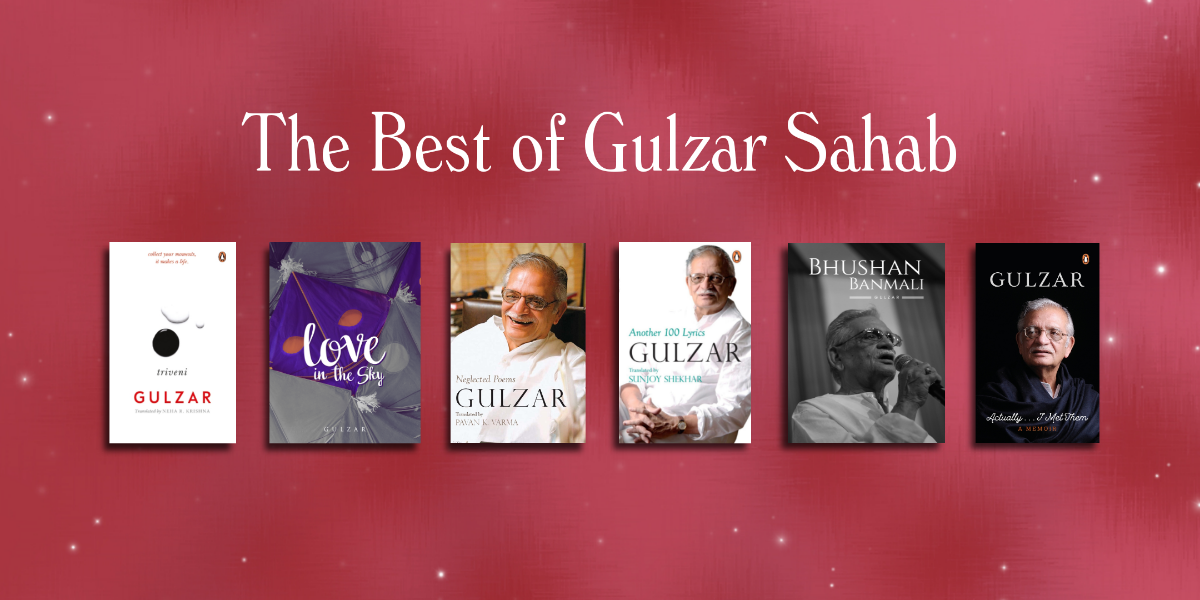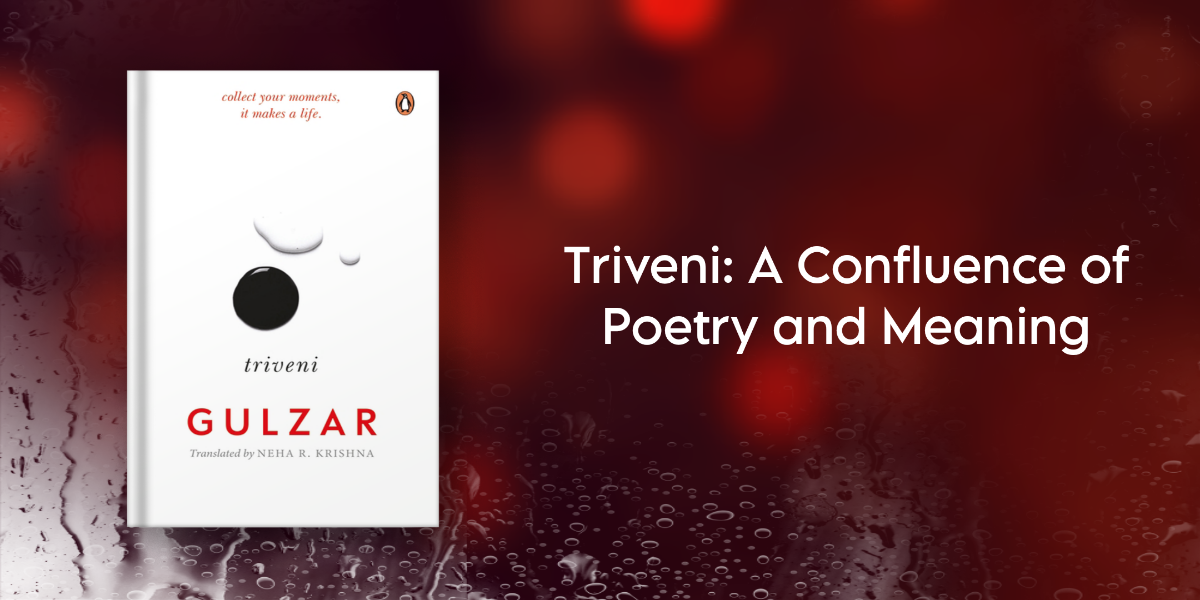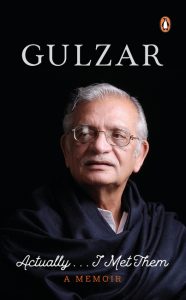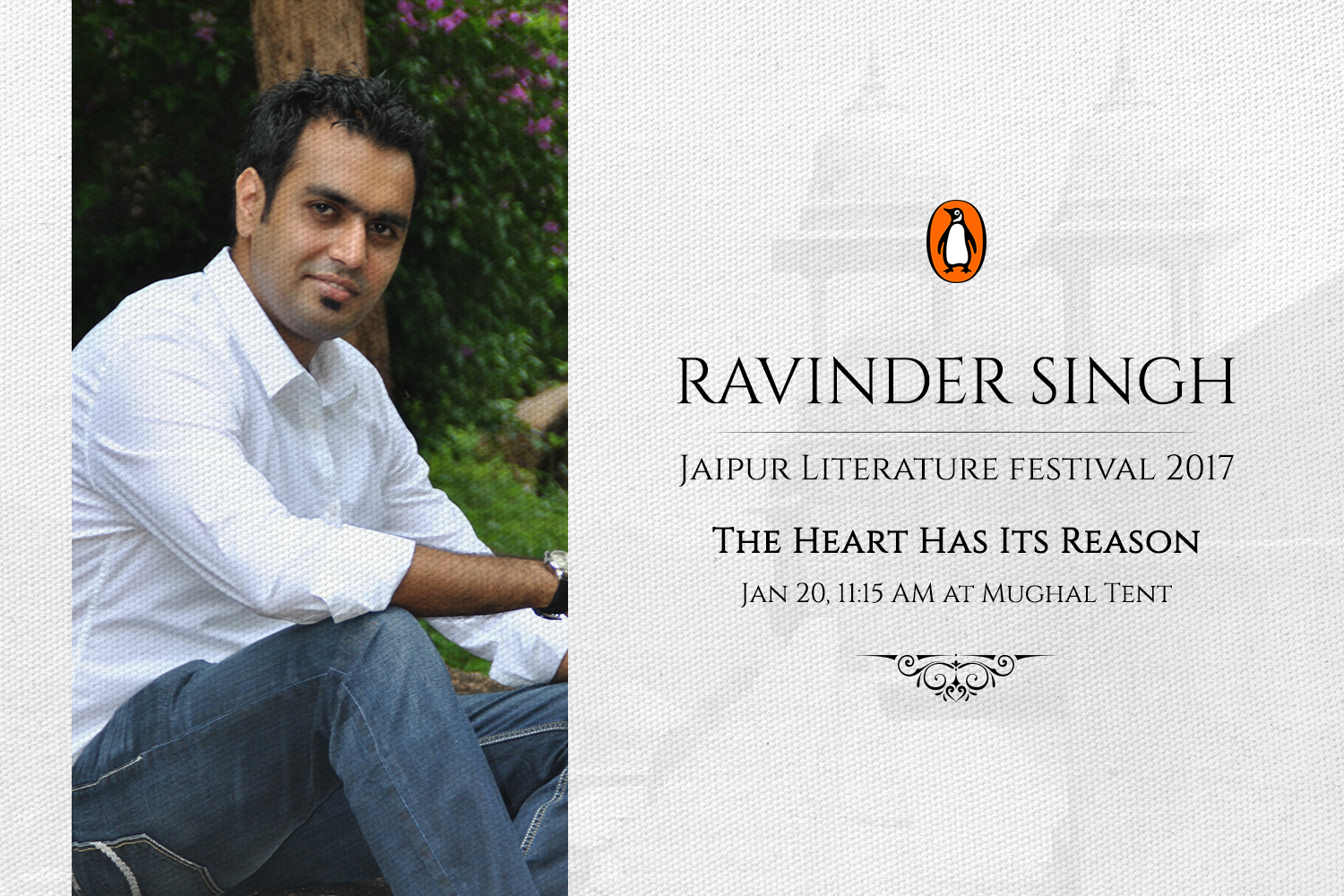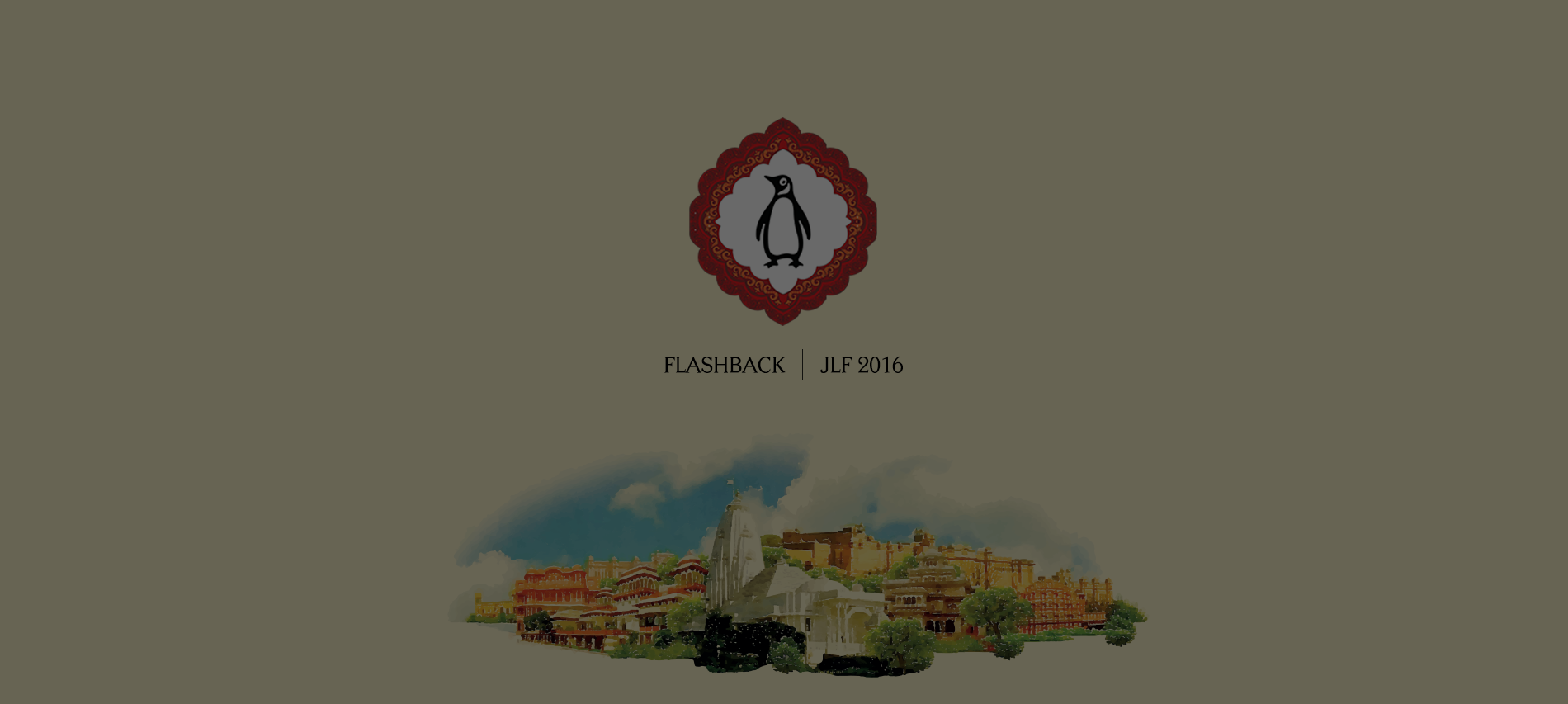Join us in honoring the literary brilliance of Gulzar Sahab, the esteemed recipient of the prestigious 2023 Jnanpith Award. As we pay tribute to his remarkable achievement, immerse yourself in this curated collection of Gulzar’s books, each page a testament to his unparalleled mastery of storytelling, poetry, and the human experience.
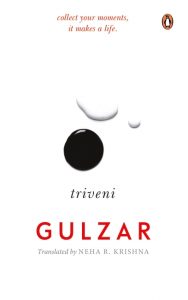
In Triveni are birds perched on branches, moonstruck musings, a house of straws, walking roses and unbridled desires of the heart. The poems are inhabited by lost lovers, unreturned books and bloodsucking rumours. A poetic form unique to Gulzar, Triveni is a confluence of three of India’s majestic rivers—the golden-hued Ganges, the deep green Yamuna and a third, the mythical one that lies beneath the former two, the Saraswati.
A form Gulzar began experimenting with in the 1960s, Triveni comes close to several classical Japanese forms of poetry such as the Haiku, Senryu and Tanka. The closest Indian forms to Triveni are the doha and shayari. In this stunning translation by Neha R. Krishna, Triveni have been transcreated as tanka and are ladled with musicality, breaking away from the charm of rhyme and metre. This collection, too, is a confluence or sangam of forms and nothing short of a gift from one of India’s most beloved poets.
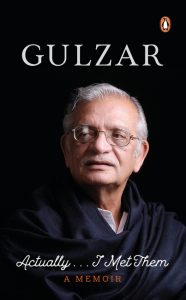
From Bimal Roy to Satyajit Ray, R.D. Burman, Kishore Kumar, Ritwik Ghatak, Hrishikesh Mukherjee, Pandit Ravi Shankar, Pandit Bhimsen Joshi, Mahasweta Devi and Samaresh Basu, among others, in this fascinating book, Gulzar Saab goes down memory lane to bring to light his relationship with the doyens of cinema, music and literature, who he had known and worked with over a long period of time. In his words, ‘It seems like a dream when I revisit my memories of such great gurus and colleagues, and I feel overwhelmed that I have really interacted with them. I have to pinch myself on realizing that actually . . . I met them.’
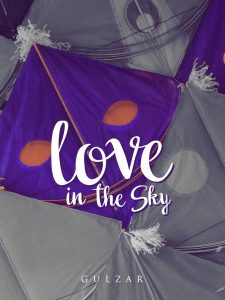
The colours on your two wings are not the same . . . one’s a brilliant yellow and the other is just the shade of ripe jamun berries I so love! May I call you Jamuni? You are so pretty!’ And every time she would flutter her wings and fly away in one smooth move.’
Ghuggu is a crow, and Jamuni the one he loves – a love of of bright yellow and purple, who comes out every afternoon to fly in the sky, silent and lovely. Ghuggu falls in love with her, not knowing why she will never speak back to him, not knowing why she will never fly to him. He sees one day that she is tied to her owner with a thread, a sharp thread that can cut, and he mourns for her freedom. One day, a storm brews, and when the Jamuni comes out, the crow runs to her to protect her – but can he protect himself? Gulzar perfectly captures the sweetness of love in this charming, delightfully silly story of love.
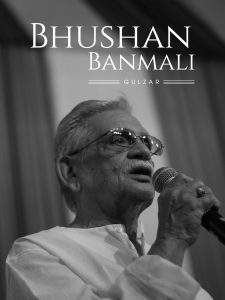
Gulzar reminisces about an old school poet – an eccentric man named Bhushan Banmali. Bhushan had a wife and a mother but at heart he was a nomad, and one day when their tug-of-war over him got too much, he packed his bags and moved in with Gulzar himself! Suddenly Gulzar found himself at parties full of rum and fried fish and kebabs, overflowing with poetry from dawn to dusk. One day Gulzar and Bhushan pack their bags to go to the mountains, and freezing and tired, they manage to find a spark of generosity to keep their cold nights hilariously warm. Taken from Gulzar’s life, these stories will enthrall any fan with a universally heartwarming touch.

The Stench paints a poignant portrait of Mumbai’s characteristic slums in the masterful prose of Gulzar. Delicately woven stories all come together – from the bitter-gourd vine separating two shanty huts, to the camaraderie of men who’d gather together on charpoys outside their homes in the evening light. Life in the slum was hard and grim, but it was theirs. But one morning, the shanty towns are razed and the people are given neat, sterile rooms to be packed in away from sight. Where will the precious goats and chickens grow on the third floor? The concrete gathers no moss, but no green blooms within these four unyielding walls. The question remains – is a life you don’t know a life you will ever want? Gulzar draws the loneliness and chaos of the urban life with astute brilliance in this beautifully detailed insight into Mumbai slums.

‘The rain was unrelenting. It had poured night and day, for five days in a row. And Damoo had been drinking relentlessly, day and night, all through those five days, competing with the downpour. Neither would the rain let up nor would Damoo let go. The steadfast rain and stubborn Damoo. Drunk, both.’
Gulzar writes a wrenching account of the Mumbai Floods – rains that laid waste to a city already bursting at the seams. He draws out the small hopes on which the people live and how easily they can flow away. How long can alcohol hold the rain at bay? A deeply moving, unsettling story on what it takes to stay alive.

‘In the village below, there are a lot of men whose houses are on this side but their farms on the other,’ Majeed began to stutter in answer. ‘There are men in a similar situation in villages on the other side too whose houses and farms are thus divided. Families and relations too. So . . .’
Gulzar writes with poignant power on the horrors of Partition, exploring the lives of those who have lived on the border made heartbreakingly complex with a sudden, arbitrary line whose scar spans generations. Major Kulwant has grown up in the valley, and he now returns as a soldier to guard it. What happens when he finds out that his old childhood friend is an enemy across the line? A touching story on how friendship and hope blooms in defiance of nationalism brought to life with the joys of a childhood in Punjab.
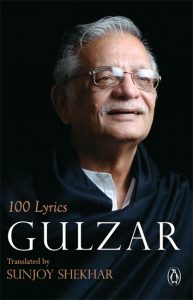
From ‘Mora gora ang lai le’, his first film lyric written for Bimal Roy’s Bandini in 1963, to the Oscar-winning ‘Jai ho’ from Slumdog Millionaire, Gulzar has brought a rare poetic sensibility to popular Hindi film music over a five-decade-long career. His sophisticated insights into psychological complexities, his ability to capture the essence of nature’s sounds and spoken dialects in written words, and above all his inimitable-and often surprising-imagery have entertained his legions of fans over successive generations. It represents Gulzar’s most memorable compositions of all time, and feature anecdotes about the composition of the lyrics as well as sketches by Gulzar.
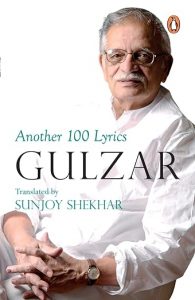
After the great success of 100 Lyrics, this new volume contains a hundred more of Gulzar’s marvellous compositions.
Gulzar has brought a rare poetic sensibility to popular Hindi film music over a five-decade-long career, and this collection showcases some of his best work, from early lyrics like ‘Ganga aaye kahan se‘ (Kabuliwala, 1961) and ‘Koi hota jisko apna‘ (Mere Apne) to classics such as ‘Tere bina jiya jaye na‘ (Ghar), ‘Do naina aur ek kahani‘ (Masoom) and ‘Roz roz ankhon taley‘ (Jeeva) and later blockbusters like ‘Goli maar bheje mein‘ (Satya), ‘Beedi jalai le‘ (Omkara), ‘Dhan te nan‘ (Kaminey), ‘Dil toh bachcha hai ji‘ (Ishqiya), ‘Challa‘ (Jab Tak Hai Jaan) and ‘Bismil‘ (Haider). In addition, Another 100 Lyrics contains some brilliant poems from non-film albums like Dil Padosi Hai, Marasim, Ishqa Ishqa and Koi Baat Chale.
Complete with anecdotes about the compositions of some of these lyrics and photographs from Gulzar’s personal collection, Another 100 Lyrics is a true collector’s item.
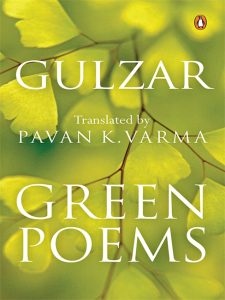
‘On the branches of these wild plants
Some words occasionally sprout
But never a full poem . . .’
One of the country’s best-loved poets and lyricists, Gulzar is renowned for his inimitable way of seeing things, his witty expressions, his quirky turns of phrase. All these creative talents come into play in delightful, unexpected ways in his new bilingual collection Green Poems, which celebrates his innate connection with nature.
Gulzar writes about rivers, forests, mountains; snow, rain, clouds; the sky, the earth and space; a familiar tree, a disused well; Kullu, Manali, Chamba, Thimpu. Like glimpses of nature, the poems are often short, an image captured in a few words. And sometimes the image gives rise to a striking thought: ‘When I pass through the forest I feel my ancestors are around me . . .’
For those new to Gulzar’s work as well as his many fans, Green Poems will prove to be a true joy.
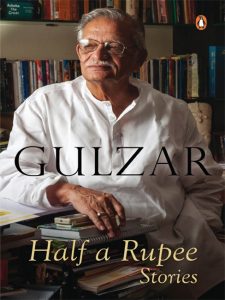
A fascinating short story from the inimitable Gulzar
Gulzar is one of India’s most renowned poets and lyricists. This e-single sees him turning his hand to another creative form at which he is equally adept – short-form prose narrative.
This story is taken from Gulzar’s new collection Half a Rupee: Stories, which comprises twenty-five gripping tales available in English for the very first time. From real-life stories about well-known personalities to tales set in Kashmir, in the hinterland, in the modern megalopolis and on the LoC, from anecdotes of love and betrayal to fables of courage and conviction, these are enthralling stories told in Gulzar’s unique style; each story will delight you.
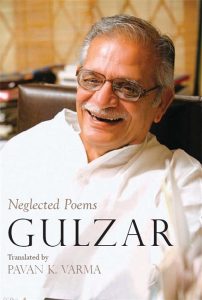
Gulzar is regarded as one of India’s foremost Urdu poets today, renowned for his unusual perspectives on life, his keen understanding of the complexities of human relationships, and his striking imagery. After Selected Poems, a collection of some of his best poetry translated by Pavan K. Varma was extremely well received, Gulzar has chosen to present his next sixty poems in an inimitable way: labelling them Neglected Poems.
‘Neglected’ only in name, these poems represent Gulzar at his creative and imaginative best, as he meditates on nature (the mountains, the monsoon, a sparrow), delves into human psychology (when a relationship ends one is amazed to notice that ‘everything goes on exactly as it used to’), explores great cities like Mumbai, Chennai, Kolkata, Delhi and New York (‘In your town, my friend, how is it that there are no homes for ants?’), and confronts the most telling moments of everyday life.







